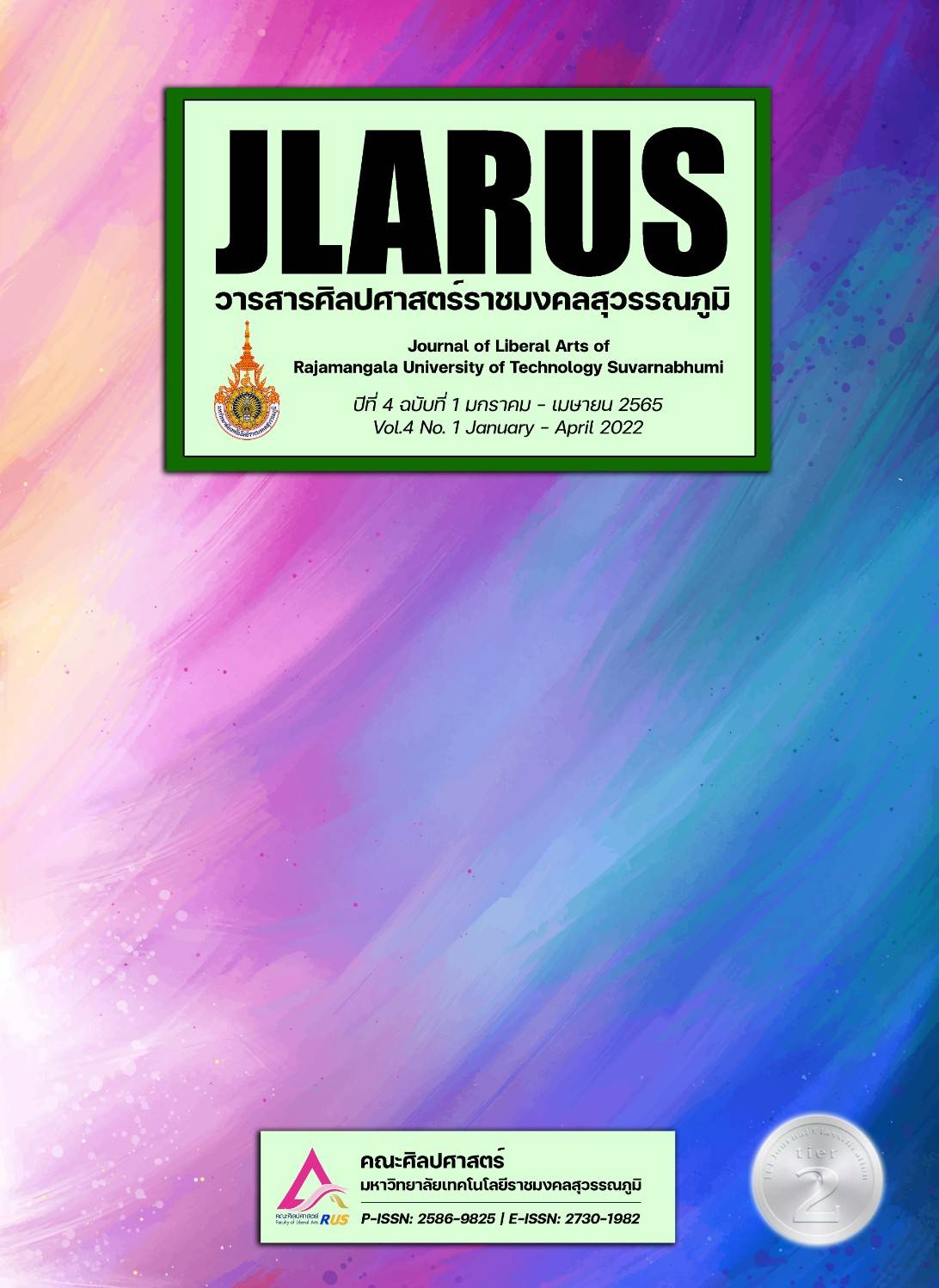THE KING'S SCIENCE AND LOCAL SUSTAINABLE DEVELOPMENT
Main Article Content
Abstract
The changes of the world in terms of economic and social today result in the way Thailand to be challenged with the problems from both inside and outside the country. The following mainstream continuous development of Thailand which is in line with the development of western countries causes the abundant and unfair use of resources; the lost of the sovereignty in managing the country's resources; the abandonment of traditional wisdom and technology; the negligence of rural communities development; the constant degradation of natural resources and the environment; lack of fairness in accessing and using resources; exceed consumption of the capacity of natural resources and the environment including the deterioration of morality of society. These phenomena are inconsistent with the context of the area in terms of thinking systems and the way of life of the community. These are true reflections of severe unbalanced development.
The King's Science for Sustainable Local Development is therefore a guideline for solving and preventing such problems of the changes. Especially, the philosophy of sufficiency economy is applied to create opportunities for local people in Thailand both in employment for the poor and socially disadvantaged to be self-reliant including creating alternatives from production and a variety of services under the principle of sufficiency in the middle way to increase the quality of life of the people in the country at all levels from the individual level family level, community level, branch level, production and national level to adjust the way of life of the Thai people and the direction of the national development and lead to “support and sharing help reduce inequality "to a balanced development in terms of economic, social, and environmental aspects to the stable, prosperous and sustainable local Thai community.
Article Details

This work is licensed under a Creative Commons Attribution-NonCommercial-NoDerivatives 4.0 International License.
References
กศิพัฎญ์ ทองแกม และโฆสิต แพงสร้อย. (2562). ปัญหาและแนวทางการแก้ไขสินค้าโอทอปตามหลักพุทธวิธีในจังหวัดอุดรธานี. วารสารมหาจุฬานาครทรรศน์, 6(7), 1469-3488.
กิ่งแก้ว ปะติตังโข, สมหมาย ปะติตังโข, ครุปกรณ์ ละเอียดอ่อน และอุทิศ ทาหอม. (2561). รูปแบบการเสริมสร้างความเข้มแข็งกลุ่มข้าวพันธุ์พื้นเมืองชุมชนบ้านลิ่มทองตำบลหนองโบสถ์ อำเภอนางรอง จังหวัดบุรีรัมย์ .วารสารรามคำแหงฉบับมนุษยศาสตร์, 37(2), 99-134.
จามรี พระสุนิล. (2562). ย้อนรอยพระบาทที่ยาตรา เรียนรู้สู่ศาสตร์พระราชา. วารสารมนุษยศาสตร์สังคมศาสตร์, 36(3), 1-38.
ชรินทร์ มั่งคั่ง. (2561). การถ่ายทอดองค์ความรู้ศาสตร์พระราชาของครูศูนย์การเรียนรู้ชุมชนเพื่อส่งเสริมความเป็นพลเมืองวิถีเขียวของผู้เรียนในพื้นที่โครงการหลวงภาคเหนือของไทย. วารสาร Veridian E-Journal. มหาวิทยาลัยศิลปากร, 11(1),1503-1521.
ชูสิทธิ์ ชูชาติ. (2554). หลักการทรงงานตามรอยพระยุคลบาท. เชียงใหม่: วนิดาการพิมพ์.
ฐานัตถ์ จันทร์อำไพ. (2561). แนวทางการน้อมนำศาสตร์พระราชาสู่การพัฒนางานด้านกิจการพลเรือนของกองทัพอากาศ. กรุงเทพมหานคร: วิทยาลัยป้องกันราชอาณาจักร.
เดชา ปุญญบาล. (2560). 9 ตามรอยบาท ศาสตร์พระราชา. วารสารสมาคมนักวิจัย, 22(2), 13-20.
ปรัชญา ปานเกตุ. (2561). สารานุกรมศาสตร์พระราชา. กรุงเทพมหานคร: สถาพรบุ๊คส์.
พระครูสมุห์ไพฑูรย์ พนมสวย, สุทธญาณ์ โอบอ้อม และ อักษรสวรรค์ ศิริคุณ. (2561). ศาสตร์พระราชากับการพัฒนาทุนมนุษย์ที่ยั่งยืน. วารสารเพื่อการพัฒนาท้องถิ่น, 2(1), 95-108.
พระราชดำรัสสมเด็จพระเทพรัตน ราชสุดา ฯ สยามบรมราชกุมารี. (2554). พระมหากษัตริย์นักพัฒนาเพื่อประโยชน์สุขสู่ปวงประชา. กรุงเทพมหานคร: สำนักงานคณะกรรมการพัฒนาการเศรษฐกิจและสังคมแห่งชาติ (สศช.).
พลเดช ปิ่นประทีป. (2542). สู่ความเป็นไทยด้วยพลังของท้องถิ่นข้อเสนอกรอบแนวคิดเพื่อจัดแผนฯ 9. กรุงเทพมหานคร: สถาบันชุมชนท้องถิ่นพัฒนา.
รอม อาวุธคม และ กระทรวงพาณิชย์. (2550). เอกอัจฉริยราชา ปัญญาแห่งแผ่นดิน. กรุงเทพมหานคร:กระทรวงพาณิชย์.
สภานิติบัญญัติแห่งชาติ. (2560). รายงานการสัมมนาของคณะอนุกรรมาธิการการวิทยาศาสตร์และเทคโนโลยี ในคณะกรรมาธิการการสื่อสารมวลชน การวิทยาศาสตร์ เทคโนโลยี และสารสนเทศ สภานิติบัญญัติแห่งชาติ. กรุงเทพมหานคร: สภานิติบัญญัติแห่งชาติ.
สำนักงานคณะกรรมการพัฒนาการเศรษฐกิจและสังคมแห่งชาติ. (2560). ร่างยุทธศาสตร์ระยะ 20 ปี. สืบค้น 12 กันยายน 2564. จาก www.nesdb.go.th.
เสรี พงศ์พิศ. (2554). เศรษฐกิจพอเพียง เกิดได้ถ้าใจปรารถนา. กรุงเทพมหานคร: เทียนวรรณ.
Punyabal, D. (2017). “9 Root of The King’s Philosophy”. Journal of the Association of Researchers, 22(2), 13-20.


